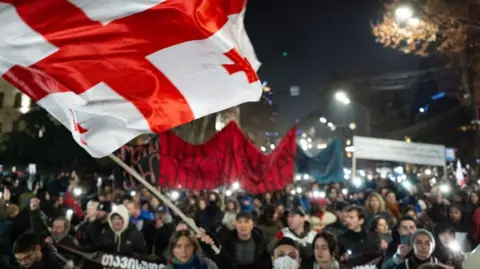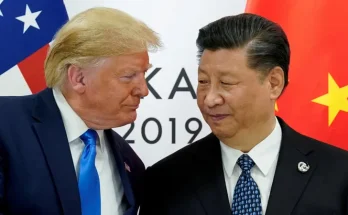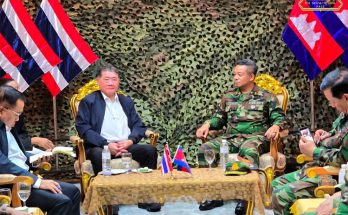Georgia’s Political Turmoil: Tax Code Amendments, Protests, and Sanctions
Last spring, as tens of thousands of Georgians flooded the streets in protest against what they saw as growing Russian influence over their nation’s politics, Georgia’s parliament quietly pushed through controversial amendments to the tax code.
At the heart of these changes was a new loophole allowing tax-free transfers of assets from offshore accounts into Georgia—a move that raised serious concerns among anti-corruption watchdogs.
Transparency International (TI) Georgia quickly sounded the alarm, suggesting that the amendment was tailored to benefit one man in particular: Bidzina Ivanishvili—Georgia’s wealthiest individual, former prime minister, and founder of the ruling Georgian Dream party.
“Now it is clear, those changes were made for him,” says Beso Namchavadze, senior economics analyst at TI Georgia.
With an estimated fortune of $4.9 billion (£3.9 billion), Ivanishvili amassed his wealth in 1990s Russia through ventures in computing, metals, and banking. Most of his fortune is believed to be hidden in offshore companies, making the new tax amendments particularly convenient.
The Foreign Agents Law and Rising Unrest
Georgia was thrust into a full-blown political crisis last May when parliament passed the controversial “Transparency on Foreign Influence” bill, commonly known as the “foreign agents law.”
Under this legislation, media outlets and non-governmental organizations (NGOs) receiving more than 20% of their funding from abroad must register as “organizations acting in the interest of a foreign power,” undergo intrusive audits, or face punitive fines. Many viewed the bill as a direct attack on Western influence in Georgia, pushing the country further into Russia’s orbit.
The law triggered massive protests, with demonstrators clashing with riot police in Tbilisi’s streets. The Georgian Dream-led government escalated tensions again when it won a disputed parliamentary election in October, sparking further unrest.
In December, outrage reignited when the government announced it would pause EU accession talks, a move widely seen as a step away from European integration and towards Moscow.
Crackdowns and Sanctions
Authorities responded to the growing dissent with a heavy-handed crackdown, arresting and brutally beating hundreds of peaceful protesters.
In response, the U.S. government imposed sanctions on Bidzina Ivanishvili at the end of last year, citing his role in undermining democracy and suppressing dissent in Georgia.
As tensions continue to mount, the battle for Georgia’s political future remains uncertain, with citizens caught in a struggle between Western aspirations and Russian influence—and a government seemingly tilting in one direction.

Daily protests are continuing over the Georgian government’s decision to stop talks to join the EU
Mounting Pressure: UK Sanctions Loom Over Ivanishvili Amid Georgia’s Political and Economic Crisis
The pressure on Bidzina Ivanishvili, Georgia’s wealthiest man and de facto political powerbroker, is intensifying. Following U.S. sanctions at the end of last year, the UK government may be next to take action.
Last month, James MacClearly, a Liberal Democrat MP, introduced an Early Day Motion in the UK Parliament, calling for sanctions against Ivanishvili. The motion expressed “deep concern” over the suspension of Georgia’s EU accession process and the escalating use of excessive force against peaceful protesters.
According to Transparency International (TI) Georgia, UK sanctions could deal a serious financial blow to Ivanishvili’s vast business empire. The reason? His holdings are tied to two British Overseas Territories—the British Virgin Islands and the Cayman Islands.
“All his major businesses in Georgia—hospitality, energy—are ultimately owned by parent companies registered in offshore territories,” explains Beso Namchavadze, senior economics analyst at TI Georgia.
A $500 Million Art Transfer?
Evidence suggests Ivanishvili is already moving assets in anticipation of sanctions. In January 2024, Georgia’s Ministry of Finance reported the import of paintings and artwork worth nearly $500 million—a staggering figure.
Many believe the art collection belongs to Ivanishvili, who is known for his passion for valuable artwork.
“For those who know him, it’s obvious—this is what he treasures most among all his wealth,” says Tina Khidasheli, Georgia’s former defense minister and head of the NGO Civic Idea. “He’s bringing his paintings back because he doesn’t want to pay tax on them.”
Meanwhile, Paata Kvijinadze, head of Georgia’s parliamentary finance and budget committee, defended the tax-free transfer law that allows offshore assets to be moved into Georgia without taxation.
“If anyone benefited from this law, I’m happy about it,” Kvijinadze stated on social media. “That was the whole purpose—attracting more investment into the country.”
Georgian Dream Defends Ivanishvili as UK Sanctions Loom
In response to the UK’s potential sanctions, the ruling Georgian Dream party rallied behind Ivanishvili, calling the threat “baseless” and praising him for bringing “democratic breakthrough” to Georgia.
Separately, Ivanishvili’s legal team announced last month that he is suing Swiss bank Julius Baer, accusing it of misinterpreting “the so-called” U.S. sanctions—which his lawyer dismissed as “political blackmail.”
The U.S. sanctions, while freezing Ivanishvili’s personal assets and barring American individuals and companies from dealing with him, do not apply to his businesses or family members.
For over a decade, Ivanishvili has been embroiled in a legal war with Credit Suisse, alleging fraud and mismanagement of his fortune. Some experts believe that these financial disputes have shaped his increasing mistrust of the West and fueled his conspiratorial rhetoric, where he often accuses critics of being part of a “global war party” or the “deep state.”
“Ever since he became convinced that Credit Suisse was conspiring against him, Bidzina Ivanishvili has held Georgia hostage to his personal financial grievances,” argues Tina Khidasheli.
Despite his honorary chairman status in Georgian Dream, experts say it is widely understood that he remains the most powerful figure in Georgian politics. This makes any sanctions against him effectively sanctions against the government itself.
A Crumbling Economy and the UAE Investment Lifeline
Georgia’s political instability is already having a severe economic impact.
Former Prime Minister Nika Gilauri, now head of the economic advisory firm Reformatics, warns that Georgia is facing a major economic downturn due to its international isolation.
“If you compare the first nine months of 2024 with the same period in 2023, foreign direct investment (FDI) has dropped by a staggering 40%,” Gilauri reports. “This trend will only get worse.”
But the Georgian government insists otherwise. Last month, Prime Minister Irakli Kobakhidze signed a $6 billion investment deal with UAE-based property giant Emaar, hailing it as the largest foreign investment in decades.
Economy Minister Levan Davitashvili projected the deal could contribute 1.5% to Georgia’s economic growth, while Kobakhidze went even further, claiming that 10% growth was now “absolutely realistic.”
However, independent analysis paints a much bleaker picture.
A recent study by Policy and Management Consulting Group (PMCG), a respected Georgian research firm, describes the economic outlook for the next six months as “extremely negative.”
The suspension of EU membership talks was widely seen as damaging, with economists surveyed by PMCG overwhelmingly viewing it as a setback.
Gilauri’s firm, Reformatics, forecasts that Georgia’s economic growth will be zero this year.
“Going forward, we’re looking at a budget deficit, currency devaluation, inflation, job losses, and economic decline,” he warns. “The only way forward—for both Georgia and Bidzina Ivanishvili—is holding new elections.”
With the country at a crossroads, the battle between pro-Western aspirations and Ivanishvili’s influence is reaching a boiling point. Whether UK sanctions will be the tipping point remains to be seen.



